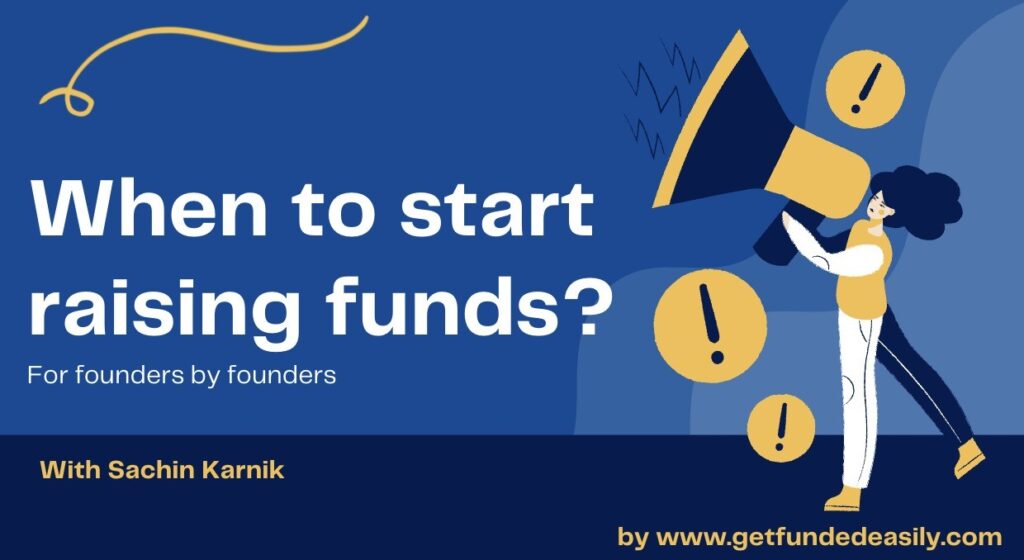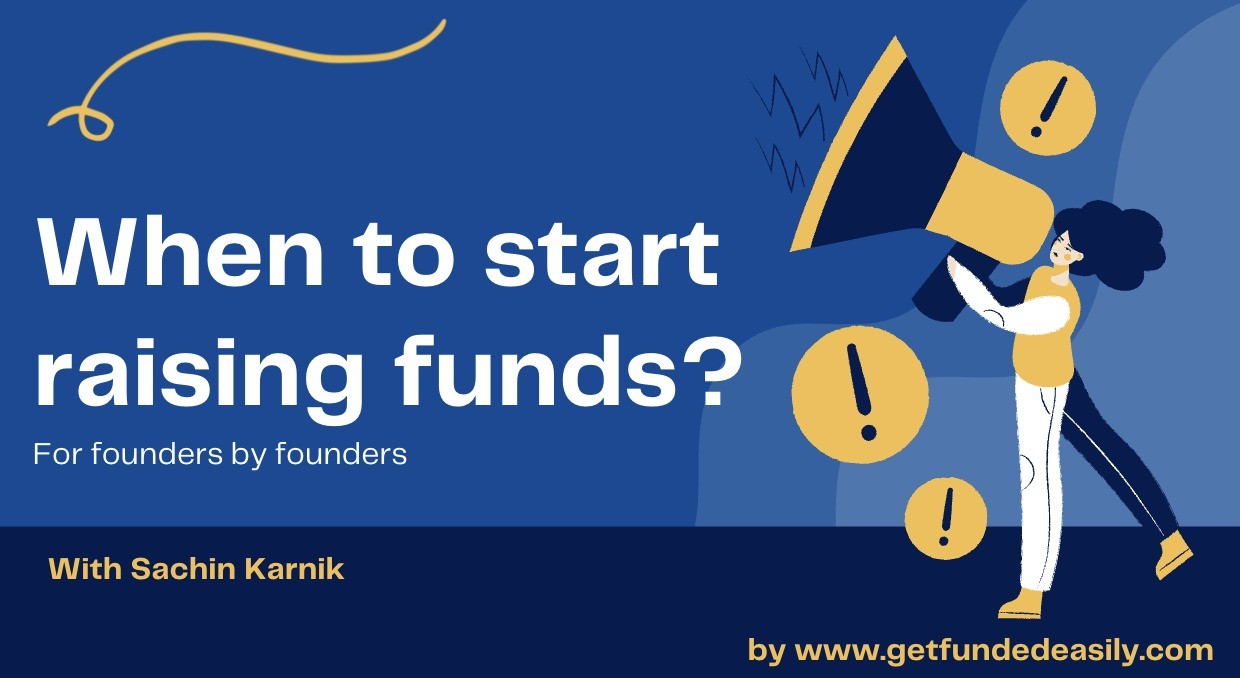Views:
316
When to start raising funds?
by getfundedeasily
February 21, 2022

We asked Sachin Karnik a good deal of questions about the right time to raise funds and what after that, especially for the young founder, and his answers were comforting and reassuring. Here are a few key takeaways from our insightful session.
We are aware of the Friends Family Fools (FFF) Model, where the tendency to be objective towards the venture is minimal, and FFFs are more kind towards the founders in general. Of course, it has its merits, which we are all aware of, but it’s relatively easy money. Funding through FFF shouldn’t be misunderstood as a yardstick of success. The first thing that founders should do is, start having conversations with the investors. While there isn’t a right or a wrong time to start raising funds, an investor should always be preparing themself.
If you are a founder and have approached VCs at least once, you must know this pervasive line they often use. Usually, you are either not ready for them or aren’t prepared for you and never a direct “No”. And that leaves us confident, but we’re, in fact, left high and dry.
Early-stage founders today rarely want to consult the right people. However, it doesn’t and shouldn’t hurt to take multiple viewpoints since the final decision lies with the founder. Actively seek out advice from people you know people you don’t know, especially if you are a new founder, and have an open mind above all. As young founders, the experience of having navigated different transactions could be a handicap, but there are easy fixes to eliminate that handicap.
Now, before you start raising funds, even at the ideation stage, make sure to check if many criteria around that venture are ticking the right boxes. Firstly, what kind of pain points is the idea solving? Secondly, is the solution likely to be monetizable and not likely to cost more than the pain itself? Thirdly, is leaving the customers out of the idea. Finally, you must have reached a stage where you have sufficient internal and external validations, and by prospective customers, and the idea isn’t just a figment of your imagination. And lastly, make sure that you have reached a stage where you don’t have to carve out a massive pound of flesh from your equity. If you’ve got these points resolved, it might be the right time for you to start raising funds.
When it comes to the service sector, preparedness would be a function of various things, the predominant ones being the scalability of the services. Can those be done in a reasonably automated way, or would it require some DIY? Is there a freemium or premium version of the services? Will the business always be human-intensive or be a function of the person delivering the service? Are there ways to not let the human influence affect the customer experience, for example, in the food delivery business or the education industry? And having more customers to get your validation from is always a good idea, even for the service sector.
When talking about the kind of investors you should look for, the ones who take an active interest in your business, have some idea about it, are willing to be patient in terms of being able to support you, and also can help you with certain rounds, are some qualities you should be looking for in your investors. Having said that, you can’t actually pick and choose your investors because you go with the group’s philosophy; in such cases, having a safeguard so that an individual investor can’t wreck your deal is essential.
Also, your investors shouldn’t judge your startup.
On using your funds wisely, be transparent with your investors because they are seasoned, and they might have experienced it, and mostly because they understand. And for the founders who have raised funds for the first time, the expectations of your investors on how you mitigate the risks and grow the business are at a much higher level than the young founders think. As a result, the young founders have to work 10X harder to ensure that the faith and capital that the investors reposed in them is reciprocated with transparency and communication.
And for the young founders, the most prominent evangelists you’ve got are your investors, who have put faith and capital in you. So if you could do a straightforward thing of underpromising and overdelivering, it would do wonders for your business and your relationship with your investors.
To sum up, as a founder, our goal is to become attractive to the investors by providing them with the opportunity to invest in early-stage high-growth potential ventures with an increased risk. As soon as you start working on a prototype, ensure that you validate your idea by serving potential customers. You will be able to find the right investors only if you go out and pitch your idea and socialize to the right audience well in advance before you need the funds.
Alone we can do so little; together we can do so much. -Helen Keller




0 Comments